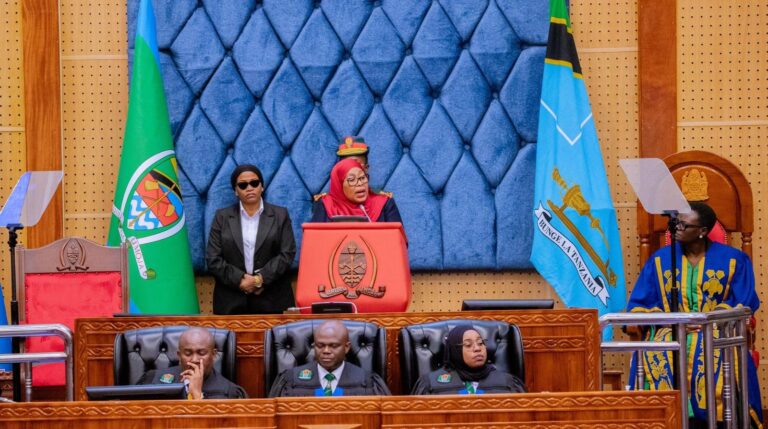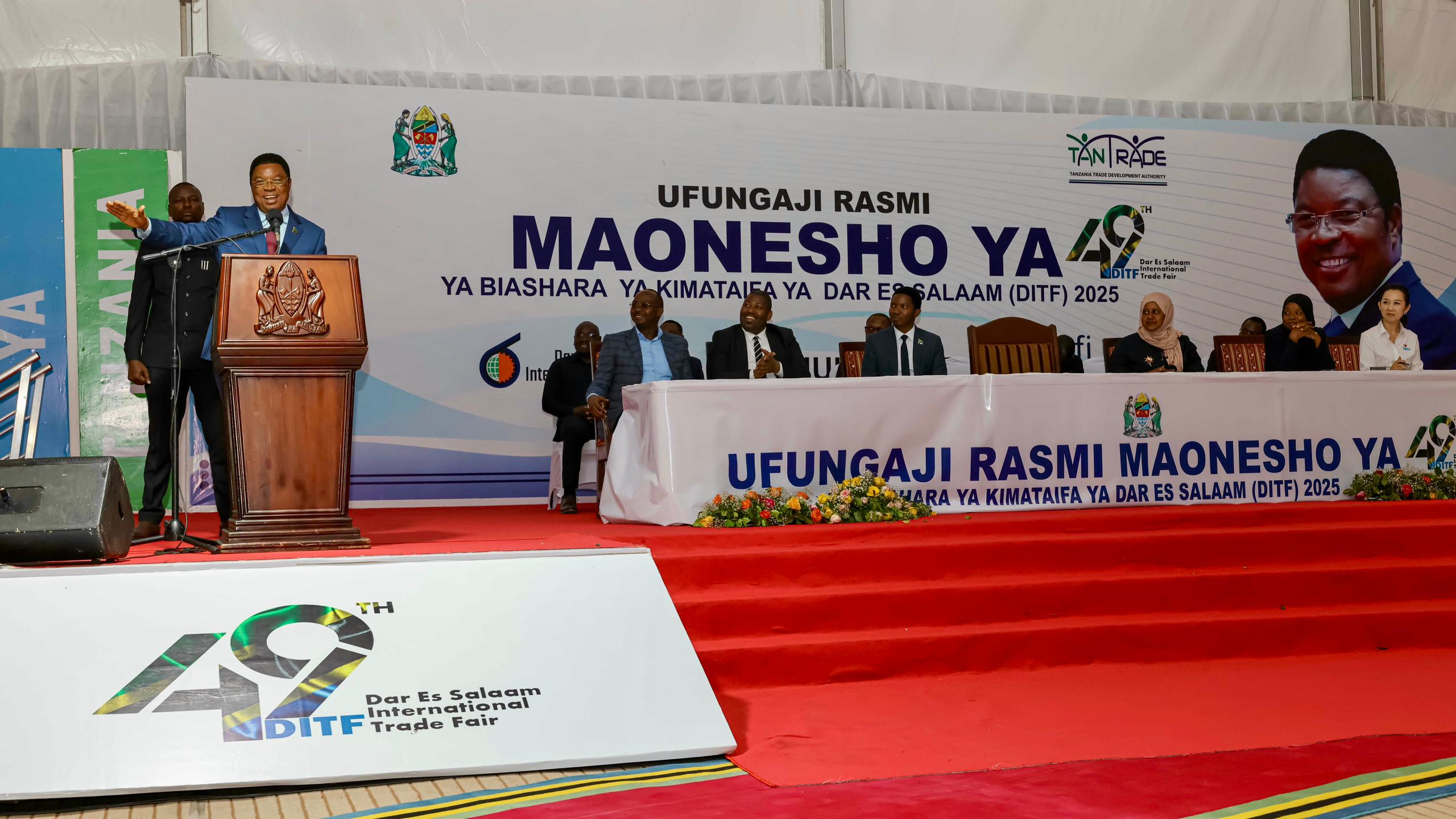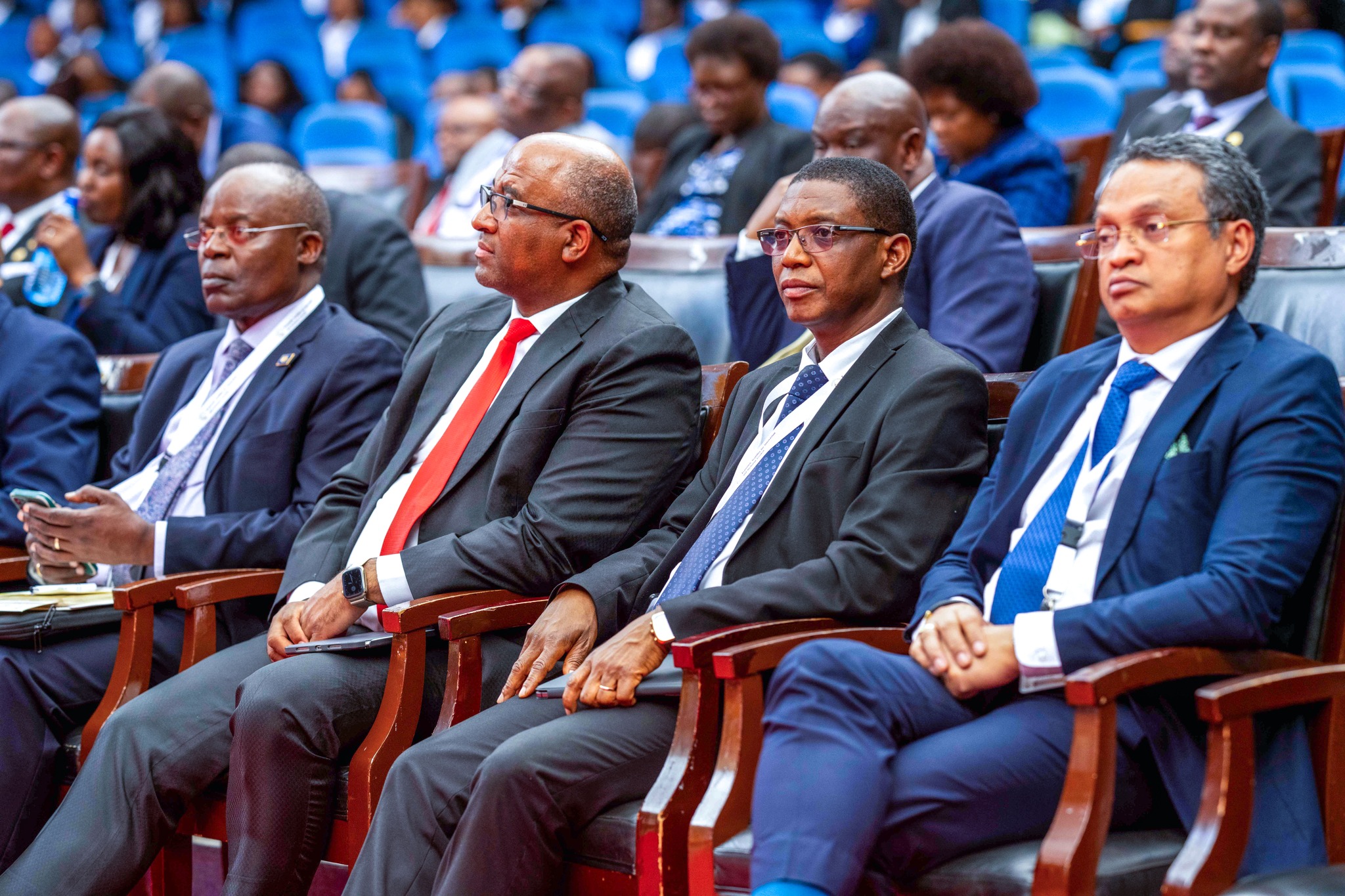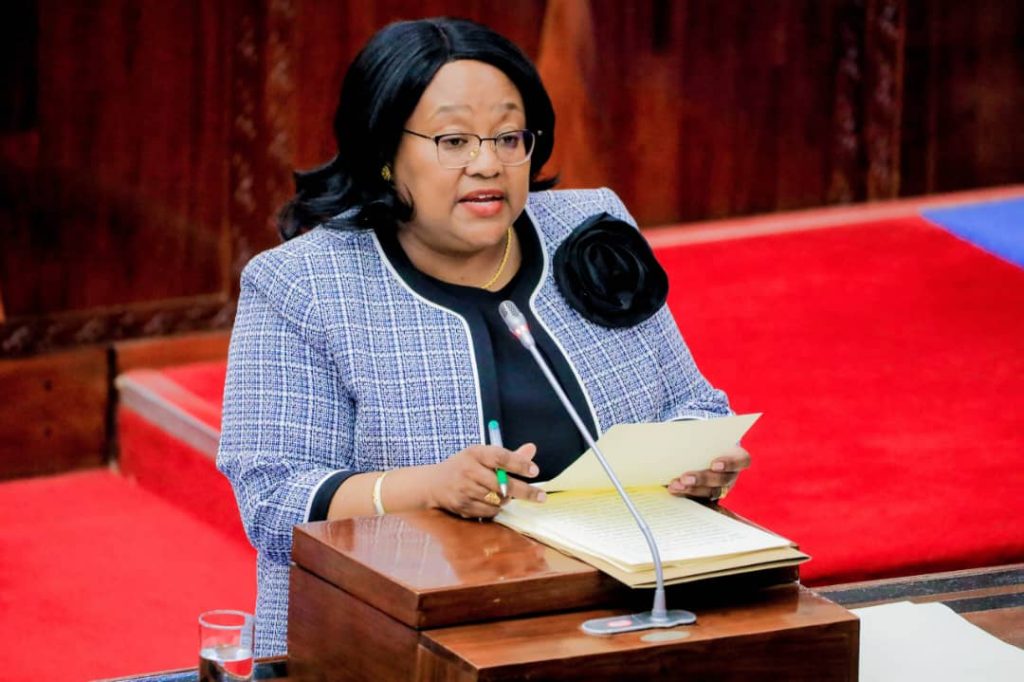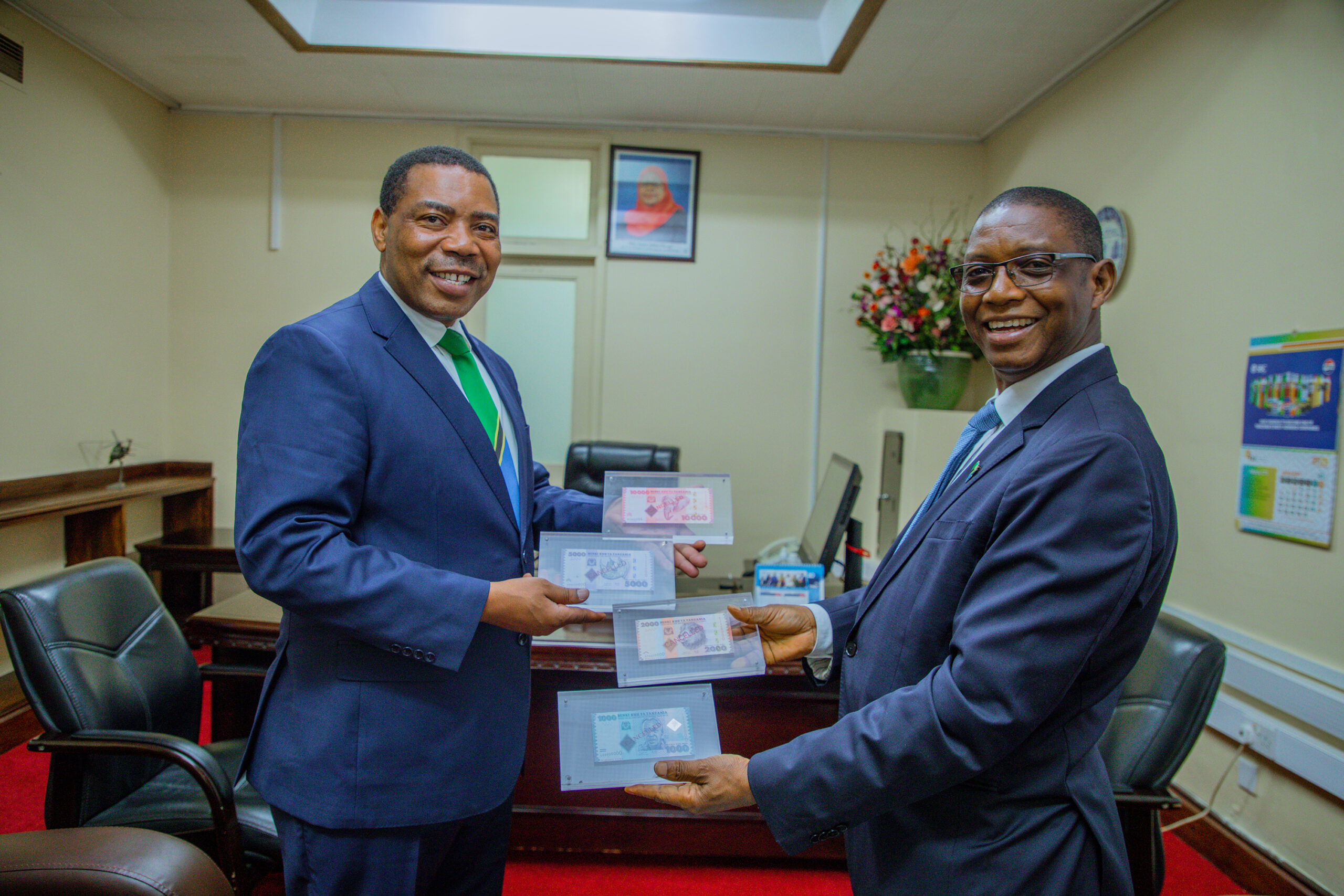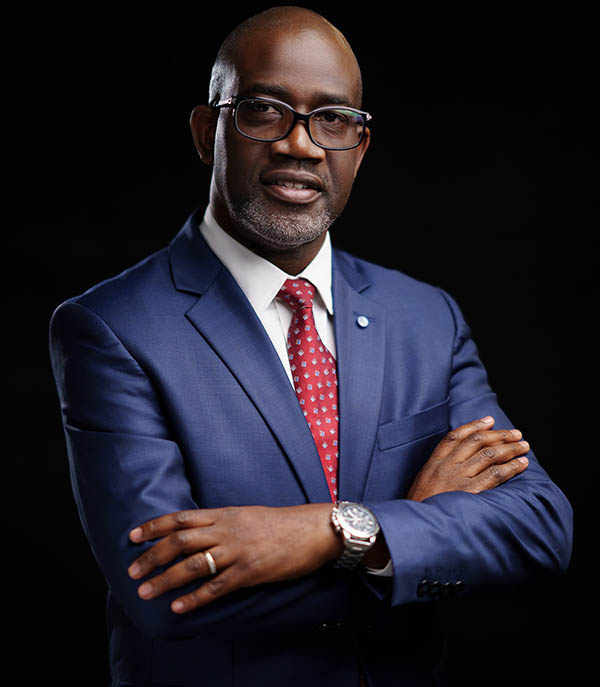Dodoma. President Samia Suluhu Hassan addressed the Parliament of the United Republic of Tanzania on Friday, June 27, 2025, using the historic occasion to reflect on the country’s recent economic trajectory, explain the increase in public debt, and outline measures her government has taken to maintain economic stability amid global turbulence.
President Samia painted a picture of steady economic growth, rising national income, low inflation, and strong external trade performance — all underpinned, she said, by deliberate policy interventions and a disciplined fiscal regime.
“Growing the economy has not been a simple task,” she told Parliament. “We have faced the Covid-19 pandemic, geopolitical tensions, and global wars — all of which have posed significant challenges. Yet we have persevered.”
Above-Average Growth in Africa
The President reported that Tanzania’s GDP growth accelerated from an average of 3.9 percent in 2021 to 5.5 percent in 2024. The growth trajectory, she noted, places the country above the continental average of 4 percent recorded in 2024.
Projections from the International Monetary Fund (IMF), she added, indicate that the country’s economy is poised to grow by 6 percent in 2025.
“This growth is not just statistical — it is transformative. It signals that our policy choices are yielding results,” she said.
She revealed that Gross Domestic Product (GDP) rose from Sh156.4 trillion in 2021 to Sh205.84 trillion in 2024, while the average income per Tanzanian climbed from Sh2,367,411 in 2020 to Sh2,938,634 in 2024.
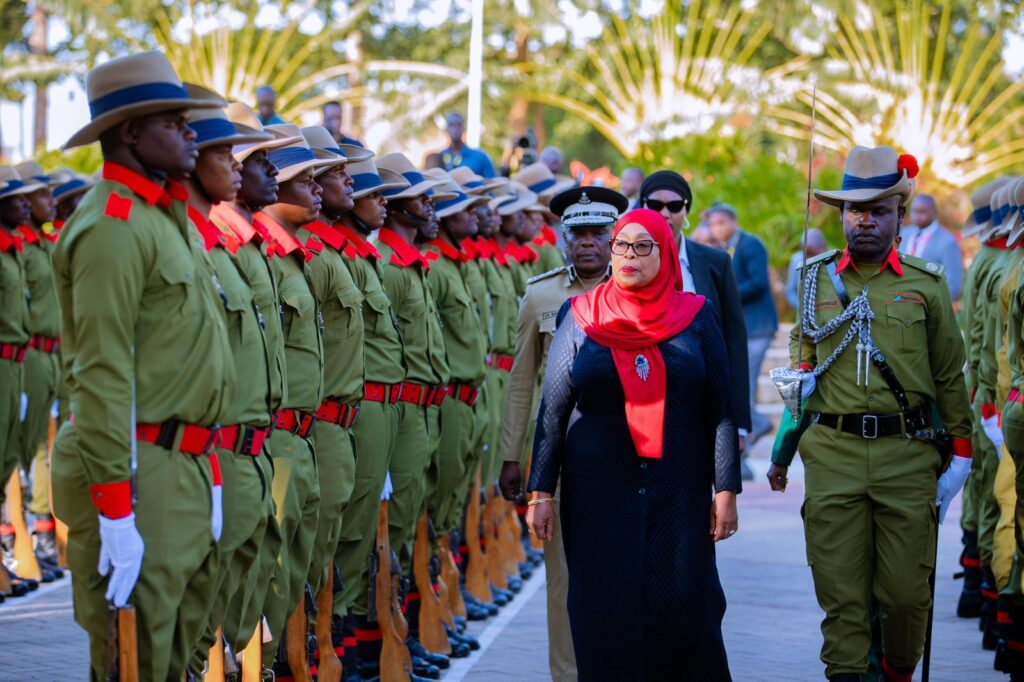
Contained Inflation, Improved Trade and Foreign Reserves
Despite global inflationary pressures, inflation in Tanzania remained below 5 percent over the past four years — within the government’s set target.
President Samia attributed this to sound implementation of fiscal and monetary policy and consistent food availability across the country.
Meanwhile, exports of goods surged from $6.39 billion in 2021 to $8.7 billion in 2024, strengthening the country’s foreign exchange position.
By April 2025, Tanzania held foreign reserves of $5.6 billion — enough to cover 4.5 months of imports, in line with East African Community (EAC) benchmarks.
In a further boost to the country’s financial resilience, the Bank of Tanzania had acquired 3,424 kilogrammes of gold for reserves, worth Sh702.3 billion, with purchases ongoing to fortify national wealth.
Public Debt: Clarifying the Narrative
Turning to the contentious issue of public debt, President Samia offered a detailed breakdown aimed at dispelling misinformation.
As of May 2025, the public debt stood at Sh107.7 trillion — with Sh72.94 trillion being external and Sh34.76 trillion domestic.
She clarified that part of this debt comprises disbursements from loans contracted by past administrations.
“Let us be clear: a loan agreement may be signed today, but the actual funds are disbursed only after project preparations are completed. It only becomes a government debt once funds, services, or agreed equipment are received,” she explained.
She disclosed that a total of Sh11.3 trillion in debt was contracted under previous governments but disbursed during her administration.
Currency Depreciation and Debt Dynamics
The weakening of the Tanzanian shilling against the US dollar has also inflated the shilling value of external debt. In March 2021, the exchange rate stood at Sh2,298.5 per dollar. By March 2025, it had reached Sh2,650, causing an additional Sh3.9 trillion increase in debt when expressed in local currency.
“This appreciation of the US dollar should not be viewed solely as a negative development,” she stated. “It was part of broader global economic realignments.”
Servicing the debt has also become costlier, with repayments rising from Sh8.22 trillion in 2020/21 to a projected Sh14.20 trillion in 2025/26. The spike, the President explained, is largely driven by the maturing of long-term and commercial loans contracted in earlier years.
Fluctuations in international interest rates — particularly decisions by the US Treasury on its bond yields — coupled with the economic impact of the Covid-19 pandemic, have compounded the burden, she said, noting that many African countries have struggled to meet their debt obligations on time.
Domestic Debt and Pension Fund Obligations
The increase in domestic debt, according to President Samia, is partly due to borrowing for development projects and repaying matured government securities held by investors.
She also spoke of a crucial government move to recognise long-outstanding pension-related obligations through the issuance of a special non-cash bond valued at Sh2.67 trillion. This includes:
- Sh2.18 trillion in legacy debts owed to the Public Service Social Security Fund (PSSSF) for civil servants employed before 1999;
- Sh400.71 billion in long-term arrears owed to the National Social Security Fund (NSSF);
- Sh63.52 billion owed to Pension Property Limited — a joint venture of pension schemes that funded government projects including the Parliament Complex in Dodoma and the Nelson Mandela African Institution of Science and Technology in Arusha.
“These debts had not previously been recognised as part of government liabilities,” she emphasised. “Our goal is to stabilise pension funds and ensure that our retirees receive their benefits on time.”
She added that an additional Sh2.2 trillion in debts would be recognised within the next three years, beginning in 2025/26. This includes Sh630 billion for pre-1999 government employee pensions and Sh180 billion owed to the National Health Insurance Fund (NHIF) for constructing the Benjamin Mkapa Hospital in Dodoma.
“We are committed to ensuring that pensioners who served this nation honourably receive what is rightfully theirs,” she declared.
Safeguarding Sustainability and Financial Discipline
President Samia assured Tanzanians that her government remains committed to maintaining debt sustainability. Strategies to achieve this, she said, include:
- Strengthening domestic revenue collection to reduce reliance on loans;
- Channeling borrowed funds strictly into projects that spur domestic revenues and exports;
- Ensuring comprehensive project preparation before signing loan agreements, in line with the Government Loans, Guarantees and Grants Act (Cap. 134);
- Tightening oversight of loan-financed projects to ensure efficiency and intended impact.
She also stressed the government’s commitment to fiscal discipline. Unnecessary expenditures have been curtailed, procurement systems strengthened, and public audits reinforced.
The reconstitution of the National Planning Commission, she said, was intended to ensure that sectoral plans align with national goals and available resources — a step she described as crucial for fiscal accountability.
“Let us continue to use every borrowed and collected shilling wisely,” she said. “This is the responsibility we owe to the present and future generations.”
Looking Ahead
As she brought her speech to a close, President Samia called for continued unity and focus as the country heads towards elections and beyond.
“Our journey has not been easy, but our results speak for themselves. Let us protect our gains and build even stronger foundations for the next generation.”
President Samia said the Parliament will be officially dissolved on August 3, 2025.

